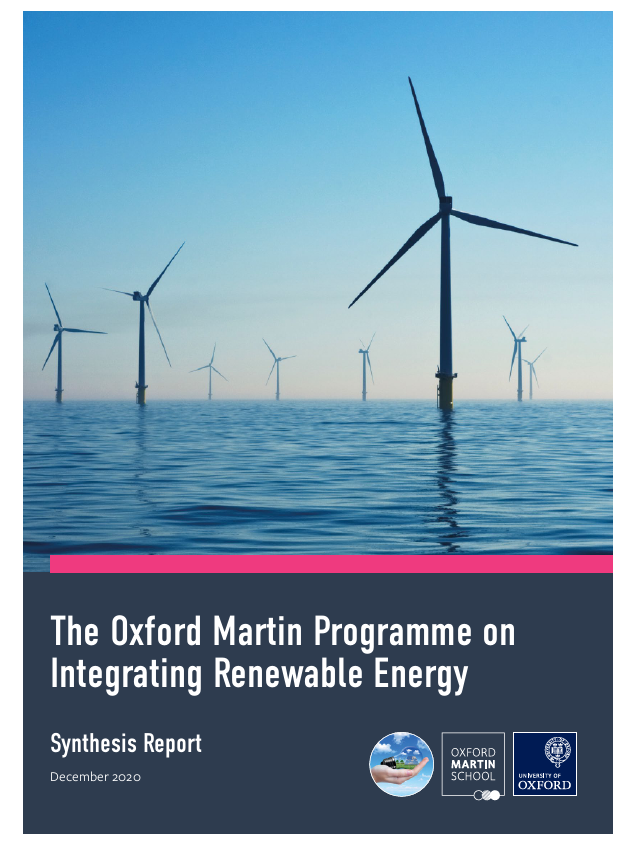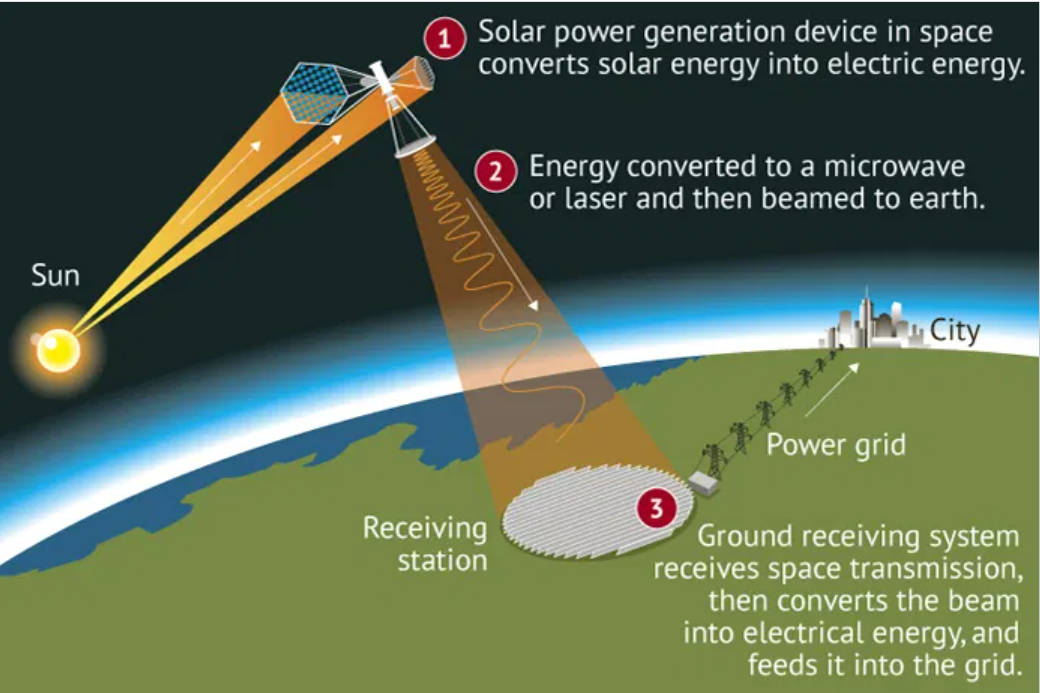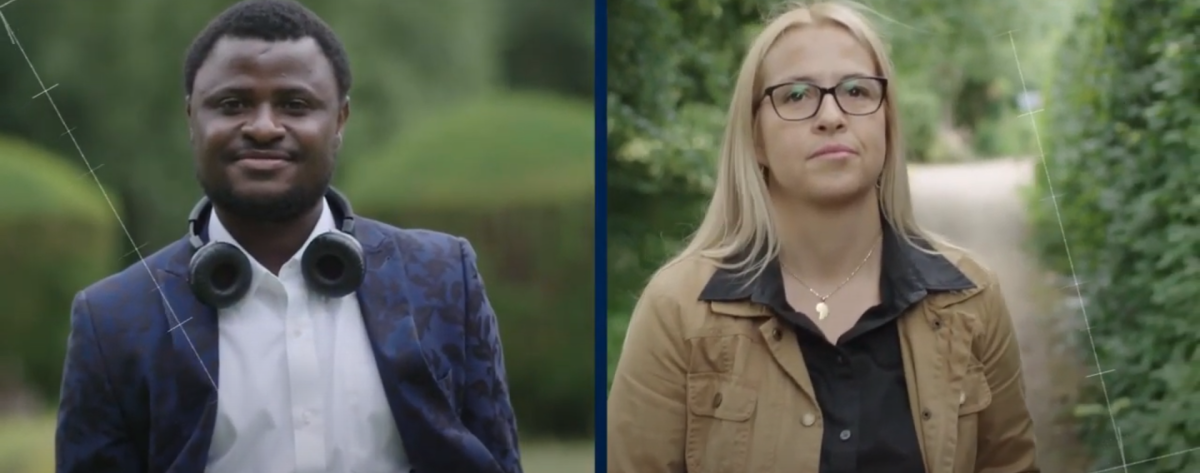Our Synthesis Report
 Key findings from the Oxford Martin School’s 5-year, £1MM, Programme on Integrating Renewable Energy have been brought together in a Synthesis Report.
Key findings from the Oxford Martin School’s 5-year, £1MM, Programme on Integrating Renewable Energy have been brought together in a Synthesis Report.
The Synthesis Report draws together key findings across this multidisciplinary programme, showcasing the work and research undertaken, and giving links to where more information and resources can be found.
Our whole systems approach looked beyond just the technology, to look at the whole energy system, bringing together people from different perspectives to address these challenges.
We explored challenges, barriers, drivers facing the further integration of renewable energy and identified potential solutions for the energy system across technical, social, economic, and governance issues.
Why renewables?
Energy consumption is a key driver of climate change, as it estimated to generate more than 80% of greenhouse gas emissions in the UK. Replacing our use of fossil fuels with renewable energy is, therefore, critical to tackling climate change.
In order to meet the goals of the Paris Agreement, we must:
- Decarbonise electricity supply as quickly as possible, and at the same time:
- Reduce demand via efficiency and changes in patterns of energy use, then:
- Decarbonise heat and transport by switching fossil fuels for renewable and low carbon sources.
Our key messages are that:
- Solar and wind are the cheapest forms of electricity generation and will be key to a low carbon energy system, together with storage and flexibility;
- Use will depend critically on integrating variable generation into electricity networks;
- Any solution will involve a mix of flexible generation, flexible demand, inter-connection and storage;
- Changes are urgently needed to energy market design, regulation and governance to accelerate decarbonisation and the ability to meet Net Zero emissions by 2050; and
- Changing energy systems requires a whole system approach, with multidisciplinary solutions for maximise success.
To the future!
Moving to a renewable and low carbon energy future is an immense challenge but one that is accepted by society across the world as urgently needed to combat climate change. Never before have the roles of citizens, civil society, businesses, and governance been so important in shaping the energy transition.
Passionate people across the world are developing ways to overcome barriers, find new technological solutions, dismantle economic and regulatory obstacles, and ensure that people are at the heart of equitable change.
Here’s to a Net Zero future for everyone, powered by renewable energy!
Page photo by Macau Photo Agency on Unsplash
Report cover by Nicholas Doherty on Unsplash




